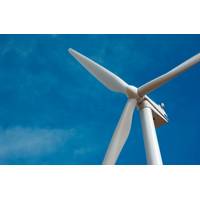UK Onshore Wind Turbines Threatened by Subsidy Cut
More than 2,500 new wind turbines, amounting to 7.1 gigawatts (GW) of electricity production capacity, are now unlikely to be built in Britain because of a fast-tracked subsidy cut outlined by the new government.
British energy minister Amber Rudd said an earlier than planned reduction in onshore wind subsidies was necessary to avoid spending more than required to meet Britain's legally binding green energy targets.
"We are reaching the limits of what is affordable," Rudd told Parliament on Monday, saying Britain was on track to meet its 2020 target with capacity already in operation and planned for the period to 2020.
Rudd said that 250 projects are now unlikely to be built because they will not receive subsidy payments, a key element to economic viability of many wind projects.
A total of 7.1 gigwatts is roughly equal to the production capacity of seven average-sized nuclear power reactors, assuming the wind plants are running at 100 percent capacity.
One of the developers likely to be affected by the cuts is utility SSE.
Analysts at Jefferies said SSE would be unlikely to complete all of its proposed onshore wind farms.
"It is important that the legislation is consistent with meeting climate change commitments cost-effectively, protecting existing investments and retaining the wider economic benefits that investment in renewable energy brings," an SSE spokeswoman said.
A full list of affected projects will be published "at some stage", Rudd added.
The government announced last week that it plans to shut down its onshore wind farm subsidies scheme from April 2016, making good on a pledge made in the run-up to the May national election to appease opposition to wind farms in rural England.
Reporting by Karolin Schaps










